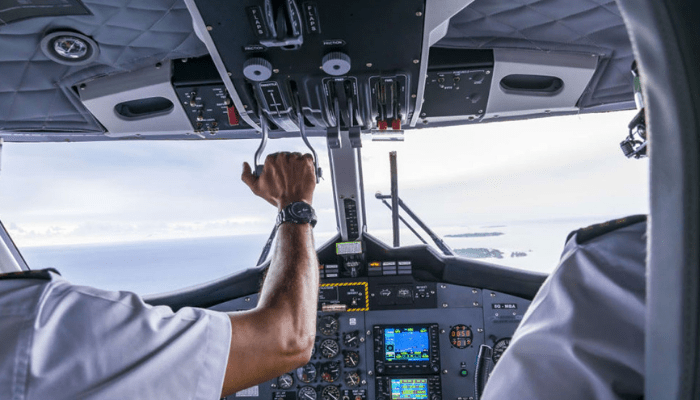Local airlines operating in Nigeria’s aviation sector have spent an estimated $5 billion on aircraft maintenance abroad in the last five years, investigations by LEADERSHIP have revealed.
LEADERSHIP reports that Aircraft maintenance, particularly the C-check, which involves an extensive inspection and overhaul of an aircraft’s engines, avionics, landing gear, and other critical systems, costs Nigerian airlines an average of $1 billion annually.
At present, domestic carriers are compelled to ferry their aircraft to Ethiopia, Italy, Morocco, Egypt, the United Arab Emirates, and South Africa for heavy maintenance due to the absence of a fully equipped Maintenance, Repair, and Overhaul (MRO) facility in Nigeria capable of conducting comprehensive C-checks.
This dependence on foreign facilities continues to cause massive capital flight and strain the country’s foreign exchange reserves.
According to aviation experts, a single C-check required every 12 to 18 months costs between $4 million and $6 million per aircraft, excluding ferrying and other related expenses.
They argued further that the practice continues to drain foreign exchange and limit the growth of the local aviation industry.
Speaking to LEADERSHIP, a former Chief Pilot of the defunct ADC Airline, Capt. Mohammed Gbadamasi said though some airlines had the capacity for C-Checks on their Aircraft, they lack manpower capacity to effectively carry out the maintenance.
According to Capt. Gbadamasi, the old Nigeria Airways hangar and the Air Force hangar can be used in joint collaboration with Aero Contractors.
He argued that if they could all agree to a sharing agreement, the collaboration would provide a formidable MRO for saving money.
“The only solution is to have a well-equipped hangar in the country that can effectively carry out maintenance on all aircraft up to category C, known as a C-check.
“For now, Aero Contractors can do aircraft maintenance up to C-check, but they don’t have the manpower and space to cover the number of aircraft in the country. The old Nigeria Airways hangar and the Air Force hangar can be used in joint collaboration with Aero Contractors to provide a formidable MRO to save money if they can come together in a sharing agreement.
“This is the only way to reduce the cost implications in foreign currency,” Capt. Gbadamasi ended.
Also speaking to Journalists, a former rector of the Nigeria College of Aviation Technology (NCAT), Zaria, Capt. Samuel Caulcrick, called on the Nigeria Civil Aviation Authority (NCAA) to initiate policy reforms that would attract investments and drive the establishment of MRO facilities within the country.
Caulcrick argued that a policy shift was crucial to curb the yearly outflow of about $1 billion spent by Nigerian airlines on aircraft maintenance abroad.
Caulcrick lamented that, despite operating and earning their flight hours within Nigeria, most domestic carriers still relied on foreign MROs for aircraft checks and heavy maintenance.
He explained that the NCAA could play a key role in reversing the trend by enforcing a section of the Air Operator Certificate (AOC) renewal process that requires airlines to identify a local MRO facility as part of their operational compliance.
“Airlines would no longer need to spend foreign currency on overseas maintenance, especially for the man-hour component of the MRO, which has become increasingly complex due to the volatile value of the naira.
“With a stronger MRO sector, Nigeria could attract foreign airlines and become a regional maintenance hub, creating jobs and drawing in foreign investment,” he said.
Recent reports showed that Nigerian airlines collectively spend about $1 billion yearly on offshore aircraft maintenance.
“A significant challenge is the lack of modern facilities and equipment. Investing in MRO is capital-intensive and requires strong government commitment to upgrade or build new facilities, in addition to policy support.
“Nigeria faces a brain drain of skilled engineers and technicians, who are often trained abroad and subsequently recruited by foreign firms offering better conditions,” he added.
He further explained that developing a strong local MRO industry would yield multiple economic benefits, including job creation, technology transfer, and improved aircraft turnaround times.
Caulcrick emphasised that establishing a robust local MRO ecosystem would mark a strategic milestone for Nigeria’s aviation sector, helping it achieve long-term sustainability and global competitiveness.
He further hoped local MRO providers would respond promptly to customer needs, reduce downtime, and increase aircraft availability.





